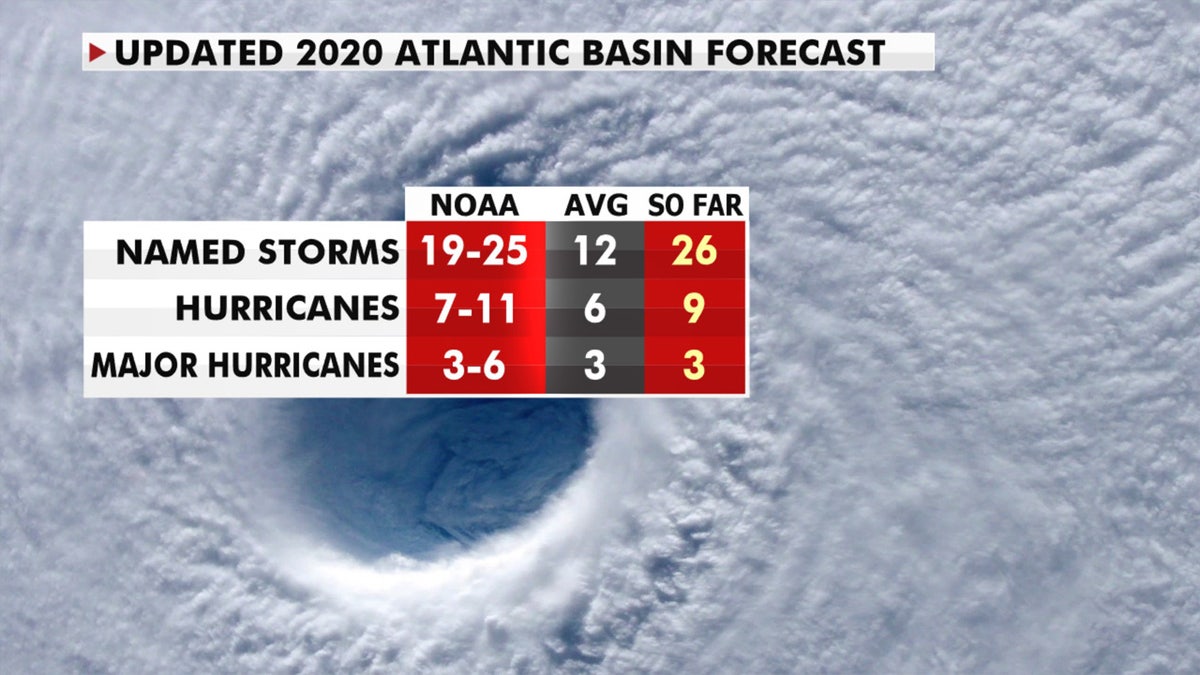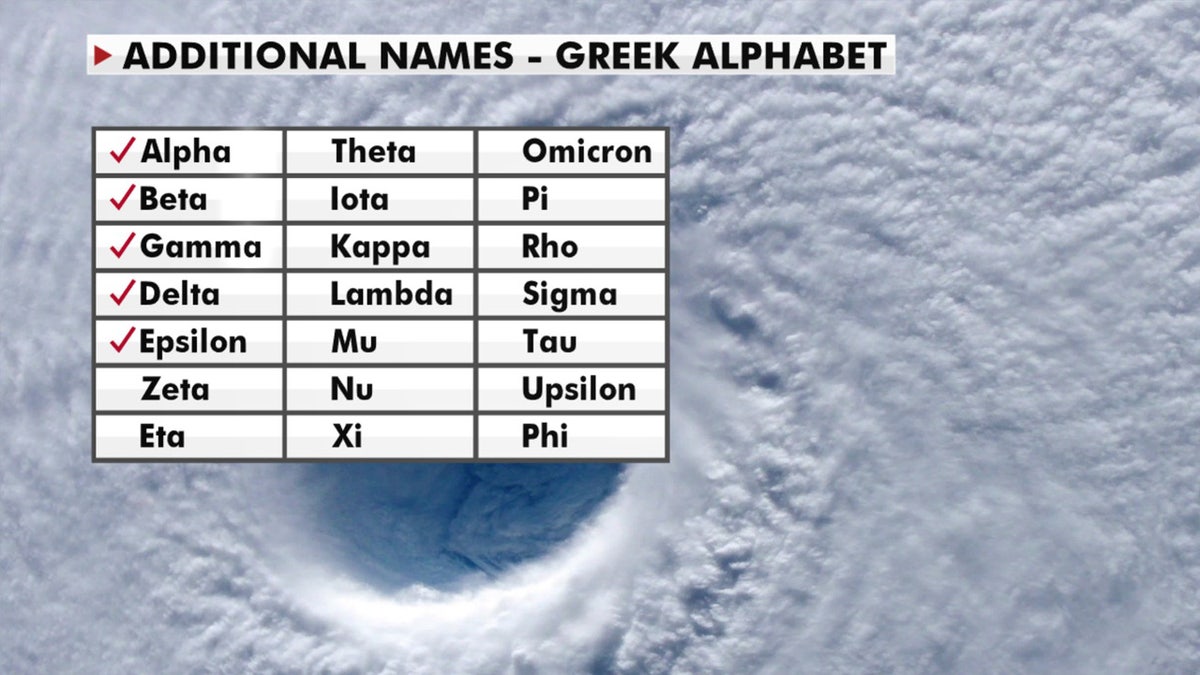The latest tropical storm is expected to become a hurricane by the time it gets closer to Bermuda later this week, with forecasters saying the island could feel some impacts.
The National Hurricane Center (NHC) said as of 2 p.m. EDT that Tropical Storm Epsilon is packing maximum sustained winds of 60 mph and is located about 675 miles southeast of Bermuda, moving east-north-northwest at 12 mph.
Epsilon formed on Monday, becoming the 26th named storm of the busy 2020 Atlantic hurricane season.
TROPICAL STORM EPSILON FORMS IN ATLANTIC, BECOMES 26TH STORM OF 2020 HURRICANE SEASON
According to the NHC, the storm is expected to make a turn toward the north and northwest later on Tuesday, with a general northwestern motion expected through Thursday.

Tropical Storm Epsilon is seen over the Atlantic on Tuesday, Oct. 10, 2020. (NOAA/GOES-East)
Gradual strengthening is also expected over the next couple of days, and Epsilon is forecast to be at or near hurricane strength by Wednesday night or Thursday morning.
The storm will then approach Bermuda on Thursday, but it's still too early to tell what impacts the storm will have.

The forecast track of Tropical Storm Epsilon. (Fox News)
Current forecast tracks show Epsilon will just brush Bermuda later this week, but the island could still be impacted by tropical storm conditions. At this point, Bermuda will likely only see tropical storm conditions with the worst staying east of the island, but a track closer to Bermuda would increase impacts.
‘BUBBLE CURTAIN’ IS THE NEWEST CRAZY HURRICANE-KILLING IDEA
"Interests in Bermuda should monitor the progress of Epsilon," the NHC said.
A tropical storm watch has been issued for the island, with tropical-storm force conditions expected to arrive within 48 hours.
Tropical storm-force winds extend outward up to 300 miles from the center of the storm, and Epsilon is generating large swells that will impact Bermuda over the next couple of days.
Epsilon represents a record for the earliest 26th named storm, beating out Nov. 22 in 2005, according to Colorado State University hurricane researcher Phil Klotzbach.
There is just over one month left in the 2020 Atlantic hurricane season, which ends Nov. 30, but this season has broken numerous records as forecasters in September ran out of traditional names and went to the Greek alphabet for storms Alpha and Beta. Delta became a Category 4 storm before weakening and swiping Mexico, then took aim and roared into Louisiana as a Category 2 hurricane.
NOAA forecasters had called for up to 25 named storms this season with winds of 39 mph or higher; of those, seven to 10 could become hurricanes. Among those hurricanes, three to six will be major, classified as Category 3, 4 and 5 with winds of 111 mph or higher.

A look at the numbers of the 2020 Atlantic hurricane season. (Fox News)
That's far above an average year. Based on 1981-to-2010 data, that is 12 named storms, six hurricanes, and three major hurricanes.
CLICK HERE FOR MORE WEATHER COVERAGE FROM FOX NEWS
So far this year, there have been 26 named storms, including nine hurricanes and of those, three major hurricanes.

A look at the Greek alphabet names that are being used for the 2020 Atlantic hurricane season, after the hurricane center ran out of official names due to the number of storms. (Fox News)
The last time the Greek alphabet was used in the Atlantic was in 2005, the year of Hurricane Katrina. With a total of 27 storms that year, the first six letters of the Greek alphabet were used: Alpha, Beta, Gamma, Delta, Epsilon and Zeta.
CLICK HERE FOR THE FOX NEWS APP
Fox News' Adam Klotz and Brandon Noriega contributed to this report.


